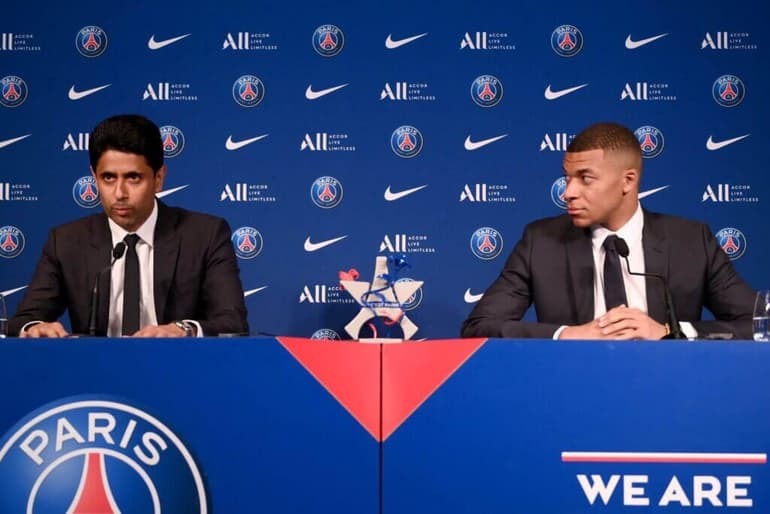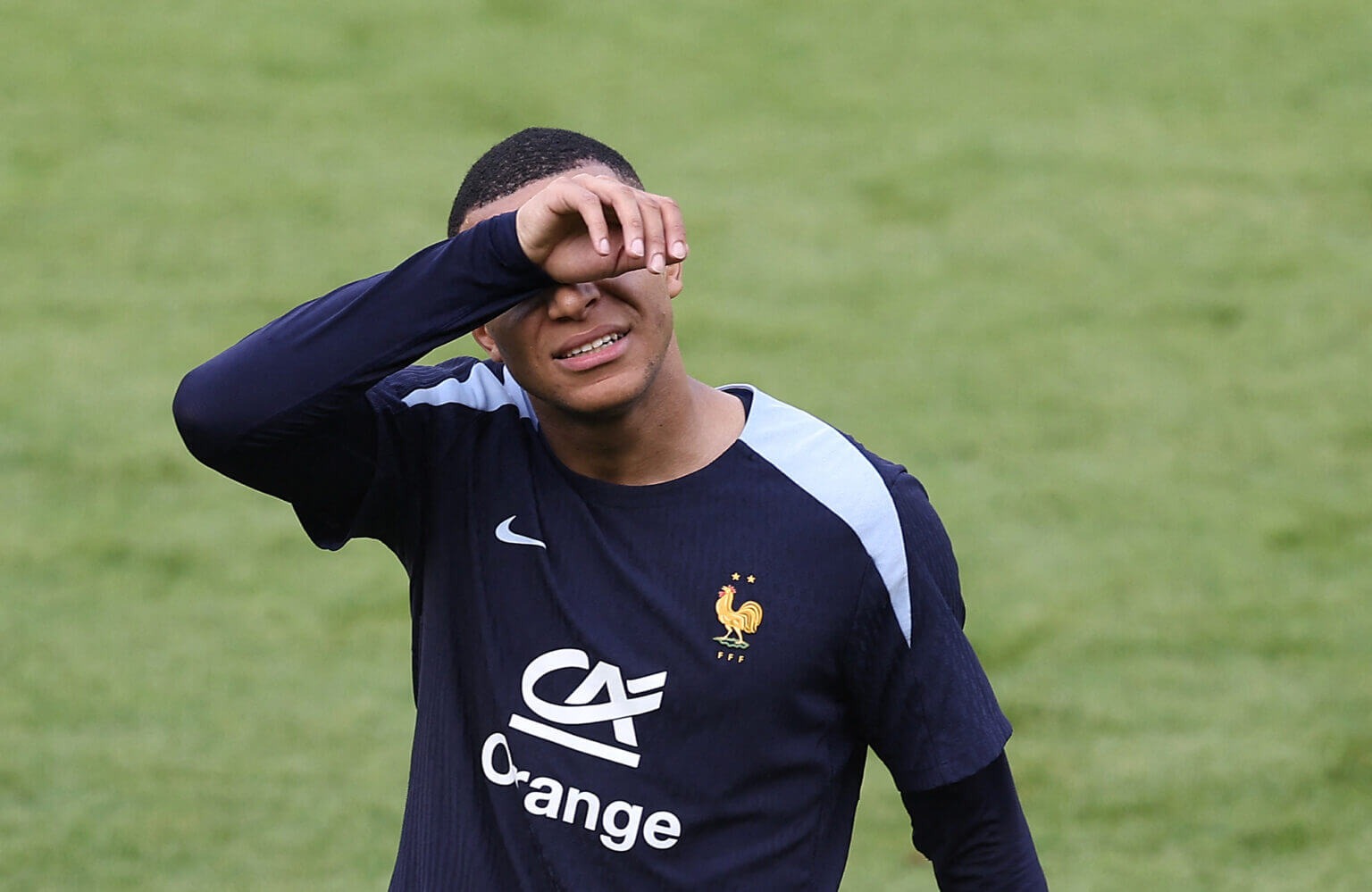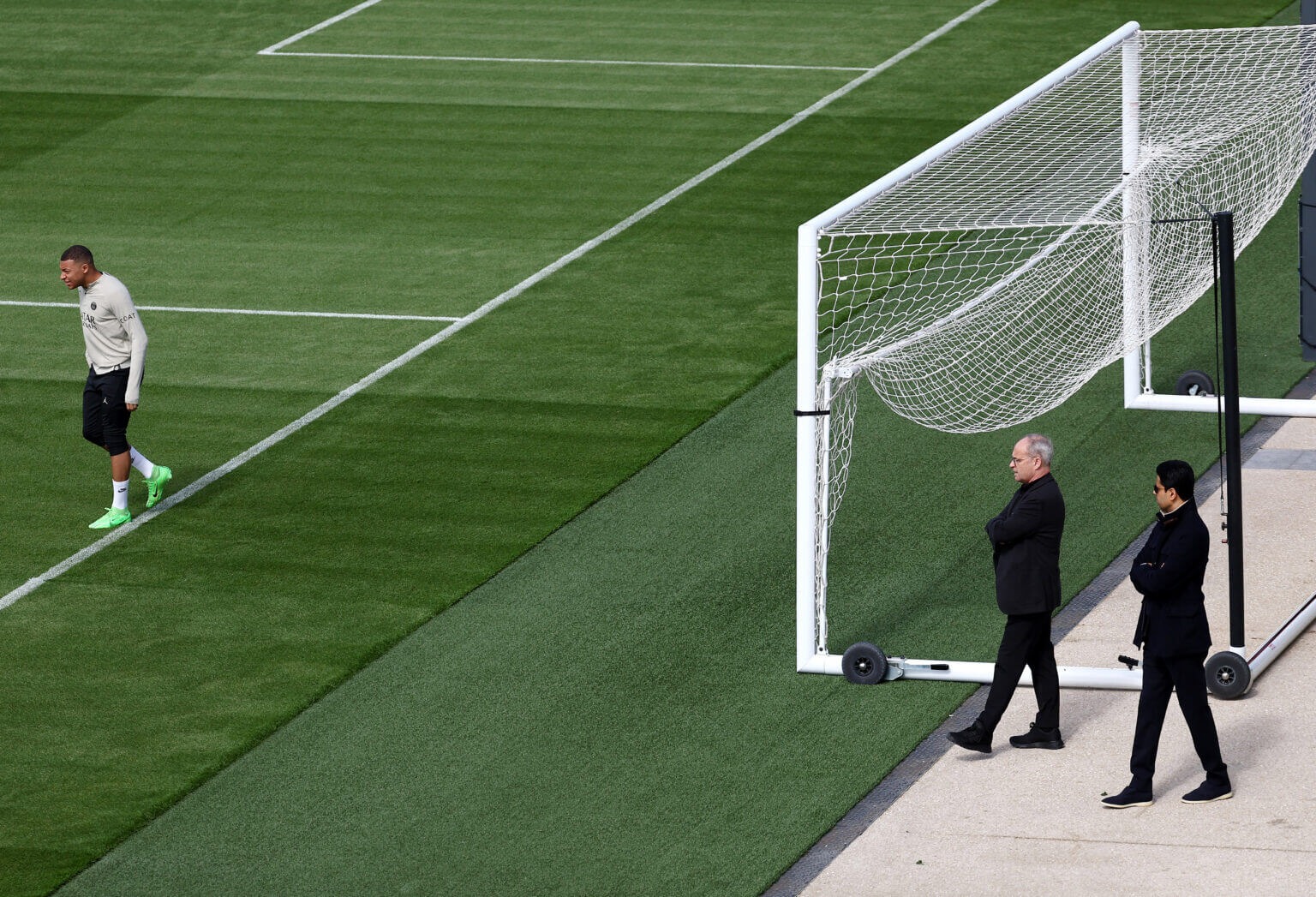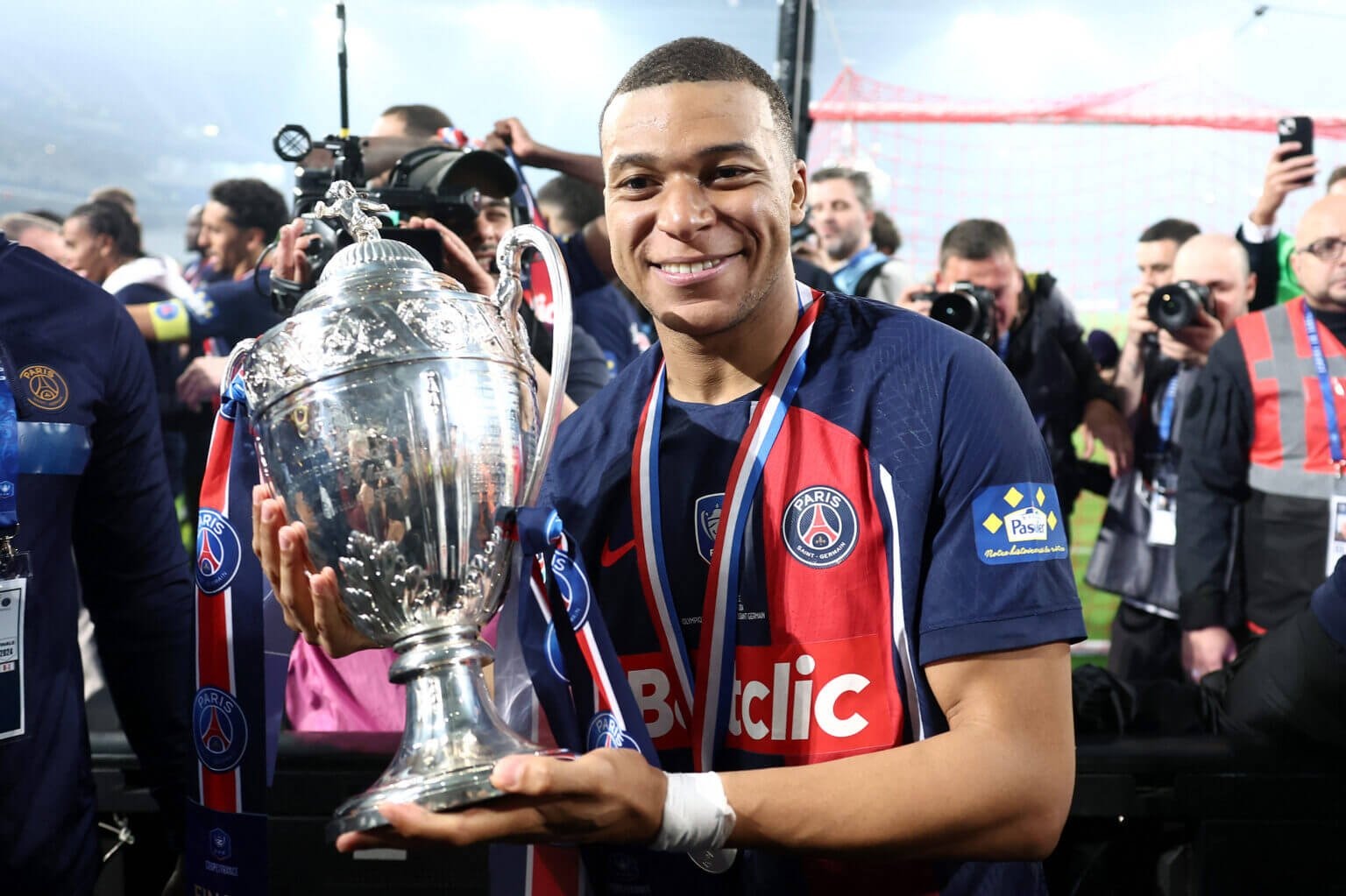
Kylian Mbappe will officially become a Real Madrid player this week. After seven years, his ties with Paris Saint-Germain will come to an end.
But there is still one last dispute to resolve.
Last month, it was revealed that Paris Saint-Germain had withheld two months of Mbappe’s salary and a bonus. In response, Mbappe reportedly filed a formal, legal notice of complaint to the French football league (LFP) and PSG. A source with knowledge of the matter, who did not want to be named to protect relationships, confirmed this was the case to The Athletic.
It is the latest twist in an ongoing saga that has defined his exit from Paris. It began last summer when Mbappe was put up for sale by PSG after he notified the club that he would not be enacting the clause in his contract that would extend his deal by a further year. He was then omitted from the first team squad that went on tour to Japan and South Korea and thrown into the “loft” — a group of players not seen as part of the first-team plans. PSG’s stance was that Mbappe would not “leave the club for free”.
That story in itself had its own legal questions should Mbappe have remained excluded from the team, but he returned after the opening league game of the season against Lorient, reached an agreement with the club’s president Nasser Al Khelaifi and, as The Athletic has outlined, was seriously considering the possibility of another renewal.
It is this agreement that is in the spotlight now.

In January, after PSG’s victory in the Trophees des Champions, Mbappe referenced it directly when discussing his future. “With the agreement I had with the president in the summer, my decision is not important as we managed to protect all the parties and preserved the serenity of the club for the challenges to come, which is the most important,” he said.
Today, though, this agreement appears to be in the balance. People familiar with the situation, who asked to remain anonymous to protect relationships, had previously described the commitment — which they say dates back to his initial contract renewal in 2022 — as an “agreement in principle” with Mbappe and his representatives. This would see Mbappe financially compensate the club if he did leave for free on the expiry of his contract on June 30.
Those briefed on the situation said the club was taking this position, by withholding salary, as they did not believe Mbappe would meet a previous commitment to “economically protect” the French champions over his exit on a free transfer. The club’s position, according to those briefed, is that this was the “best way” to settle the agreement as the final figure can be topped up or reduced, depending on what is agreed.
Mbappe’s representatives have been contacted.
But are PSG legally allowed to withhold his salary?
“In French law, the salary must be paid every month,” explains Deborah David, employment law specialist with De Gaulle Fleurance. “It is not possible to withhold salary, even if it is to offset the final payment.”
The key legal texts concern French employment law and the French Football Charter (Charte Du Football Professionnel). Under labour law, it is the employee — in this case Mbappe — who is in a position of strength.
“First and foremost, it is crucial to note that Kylian Mbappe remains an employee of PSG until June 30,” writes Charles Aziere, sports lawyer at Ewen Law, and Thierry Aballea, partner at Ewen Law, corresponding with The Athletic by email. “In France, labour law offers substantial protection to employees, who are regarded as the ‘weaker party’ in their relationships with employers.
“According to jurisprudence from the Cour de Cassation (the French Supreme Court), it constitutes a serious breach by the employer, ‘regardless of whether this failure is justified or not by legitimate reasons’ (Cour de Cassation, Social Chamber, March 27, 2008), potentially resulting in the award of damages and could potentially constitute a criminal offence (Article R3246-1 of the French Labour Code).”
Under Article L1313-2, the French Labour code also prohibits an employer from imposing financial penalties on its employees. “Under French law, you cannot retain part or all of the salary because of, for example, the misconduct of the employee, a disciplinary, financial, situation…” adds Deborah David.
The French Football Charter follows the French Labour Code. The charter was first introduced in 1973 after a footballers’ strike. It is a collective agreement that aims to regulate relationships between football’s stakeholders, including the French Football Federation (FFF), the Professional Football League (LFP), the clubs, coaches and the players.

In January, after PSG’s victory in the Trophees des Champions, Mbappe referenced it directly when discussing his future. “With the agreement I had with the president in the summer, my decision is not important as we managed to protect all the parties and preserved the serenity of the club for the challenges to come, which is the most important,” he said.
Today, though, this agreement appears to be in the balance. People familiar with the situation, who asked to remain anonymous to protect relationships, had previously described the commitment — which they say dates back to his initial contract renewal in 2022 — as an “agreement in principle” with Mbappe and his representatives. This would see Mbappe financially compensate the club if he did leave for free on the expiry of his contract on June 30.
Those briefed on the situation said the club was taking this position, by withholding salary, as they did not believe Mbappe would meet a previous commitment to “economically protect” the French champions over his exit on a free transfer. The club’s position, according to those briefed, is that this was the “best way” to settle the agreement as the final figure can be topped up or reduced, depending on what is agreed.
Mbappe’s representatives have been contacted.
But are PSG legally allowed to withhold his salary?
“In French law, the salary must be paid every month,” explains Deborah David, employment law specialist with De Gaulle Fleurance. “It is not possible to withhold salary, even if it is to offset the final payment.”
The key legal texts concern French employment law and the French Football Charter (Charte Du Football Professionnel). Under labour law, it is the employee — in this case Mbappe — who is in a position of strength.
“First and foremost, it is crucial to note that Kylian Mbappe remains an employee of PSG until June 30,” writes Charles Aziere, sports lawyer at Ewen Law, and Thierry Aballea, partner at Ewen Law, corresponding with The Athletic by email. “In France, labour law offers substantial protection to employees, who are regarded as the ‘weaker party’ in their relationships with employers.
“According to jurisprudence from the Cour de Cassation (the French Supreme Court), it constitutes a serious breach by the employer, ‘regardless of whether this failure is justified or not by legitimate reasons’ (Cour de Cassation, Social Chamber, March 27, 2008), potentially resulting in the award of damages and could potentially constitute a criminal offence (Article R3246-1 of the French Labour Code).”
Under Article L1313-2, the French Labour code also prohibits an employer from imposing financial penalties on its employees. “Under French law, you cannot retain part or all of the salary because of, for example, the misconduct of the employee, a disciplinary, financial, situation…” adds Deborah David.
The French Football Charter follows the French Labour Code. The charter was first introduced in 1973 after a footballers’ strike. It is a collective agreement that aims to regulate relationships between football’s stakeholders, including the French Football Federation (FFF), the Professional Football League (LFP), the clubs, coaches and the players.

“The payment of salaries is mandatory,” says David. “So unless Mbappe signed a settlement agreement, settling any dispute… but even then, it’s not only salaries, you have all the withholding of Social Security contribution and taxes that must be made on the basic salary. Which is probably not the case as part of a settlement indemnity. So the salary is highly protected.
“If there was an amendment to the employment contract, for example, according to which the salary was agreed between the parties that the salary would be less than expected, it would be fair to consider that PSG could have complied with that. But it could not be zero salary.”
Could it be possible that even if Mbappe and PSG came to an agreed settlement, the authorities may have recourse to pursue the loss of taxes as well?
“Actually, yes, it could,” says David. “Because if there is a settlement agreement between the parties afterwards and the parties decide to include the amount of the salary due to the settlement indemnity, the French Social Security authorities could claim that it’s not fair because they have settled on remuneration and social security contribution was withheld.”
Fundamentally, it appears that these are negotiating positions designed to apply pressure, with PSG withholding salary and Mbappe sending a formal notice to the club and the league. A settlement could be a way out and a route to avoid a court appearance. Those briefed on the matter expect there will be a settlement soon.
A court showdown would be very public, take time to complete, and could be reputationally damaging for both parties. But as unlikely as it seems, Mbappe may make his first appearance against PSG earlier than in the Champions League.
